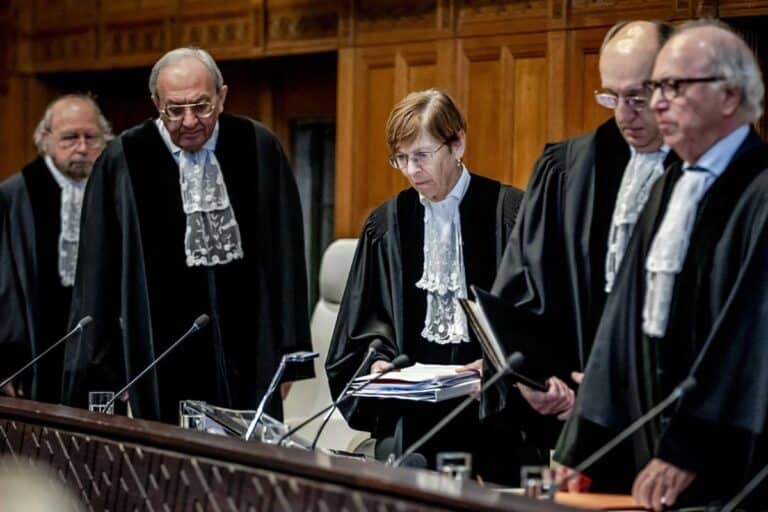
This article, originally published on Jan. 11, 2024, has been updated on Jan. 26 to incorporate the ICJ’s preliminary ruling.
The International Court of Justice (ICJ) issued provisional measures against Israel on Friday, ordering Israel to take “all measures in its power” to refrain from acts that could lead to genocide in the war against Hamas.
Notably, the court did not demand a ceasefire. The court’s initial ruling came after South Africa accused Israel of committing genocide in Gaza (read more below).
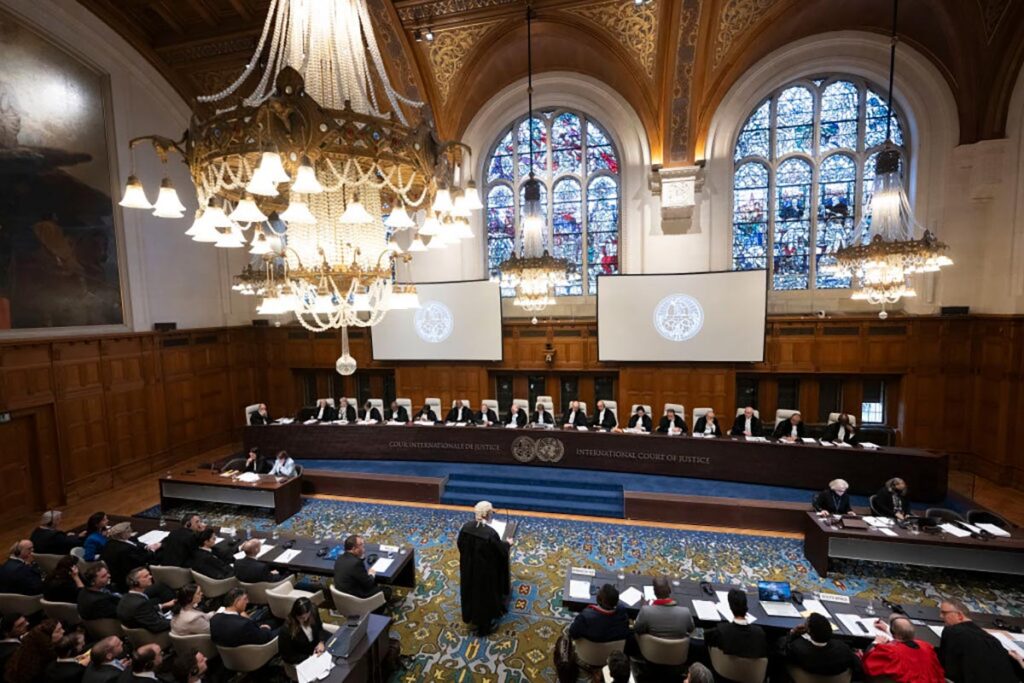
The court ruled that Israel must ensure that the IDF is not taking any action that violates the Genocide Convention, which defines genocide under international law and obligates countries to enforce the prohibition against it.
The ICJ also demanded that Israel ensure more humanitarian aid is provided to Gaza, and that Israel prevent and punish any incitement of genocide against Palestinians. The court ordered Israel to provide a report within the next month detailing how it is complying with the court’s instructions.
Following the ruling, Prime Minister Benjamin Netanyahu said that the case was a “vile attempt to deny Israel” the right to defend itself. “Israel’s commitment to international law is unwavering…The charge of genocide leveled against Israel is not only false, it’s outrageous, and decent people everywhere should reject it,” he said.
The prime minister added that Israel is fighting a “just war” against “terrorists, not against Palestinian civilians,” and vowed that Israel would keep fighting “until total victory, until we defeat Hamas, return all the captives and ensure that Gaza will not again be a threat to Israel.”
Here’s everything you need to know about South Africa’s genocide charge against Israel at the Hague.
What happened?
On Jan. 11, South Africa accused Israel of committing genocide against Palestinians in the Gaza Strip and demanded that the court order Israel to stop the war against Hamas.
The South African legal team argued that the significant loss of Palestinian civilian lives, reduced access to food, water and medical treatment in Gaza, and inflammatory statements made by Israeli government ministers meant that Israel was perpetrating genocide.
The next day, Israel defended itself against South Africa’s genocide charge, arguing that the accusation is “grossly distorted” and highlighting Hamas’s use of civilians as human shields and measures the IDF is taking to protect civilians in Gaza.
In his response at the hearing, Tal Becker, the legal adviser to Israel’s Foreign Ministry, said, “If there were acts of genocide, they have been perpetrated against Israel.”
“If the claim of the applicant is that Israel must be denied the ability to defend citizens, the absurd upshot is that under guise of genocide claims this court is trying to stop Israel defending its civilians against an organization which pursues a genocidal agenda against them,” Becker added.
The U.S., Germany and other European allies rejected South Africa’s charge as unfounded. While Israel usually refuses to take part in such tribunals at The Hague, the Israeli legal team’s participation suggests Israel believes it can successfully defend itself from the claims.
If Israel is convicted, it would mark the first time the ICJ would rule that a country is responsible for genocide. Not surprisingly, South Africa’s legal team failed to mention Hamas’s openly stated mission to destroy the state of Israel and its people, which would be an act of genocide.
What is the International Court of Justice?
As the main court of the United Nations, the ICJ settles legal disputes between countries and gives advisory opinions on legal issues, when asked by the U.N. and other agencies.
The court can only rule on cases when both parties to the case agree to accept its jurisdiction, although there are some exceptions.
While the ICJ doesn’t have any way to enforce its rulings, its rulings are binding under international law.
The court often issues provisional measures early on in cases, even well before the proceedings are completed, in order to prevent a further deterioration of the situation. They can only do this, however, if they deem the case presented to them to be “plausible.” We’ll explain why that word is important below.
Unlike the International Criminal Court, which can prosecute individuals suspected of violating international law even if they’re not associated with states, the ICJ cannot try individuals accused of war crimes or crimes against humanity. The ICJ can only try cases involving disputes between states.
What is South Africa’s case against Israel?
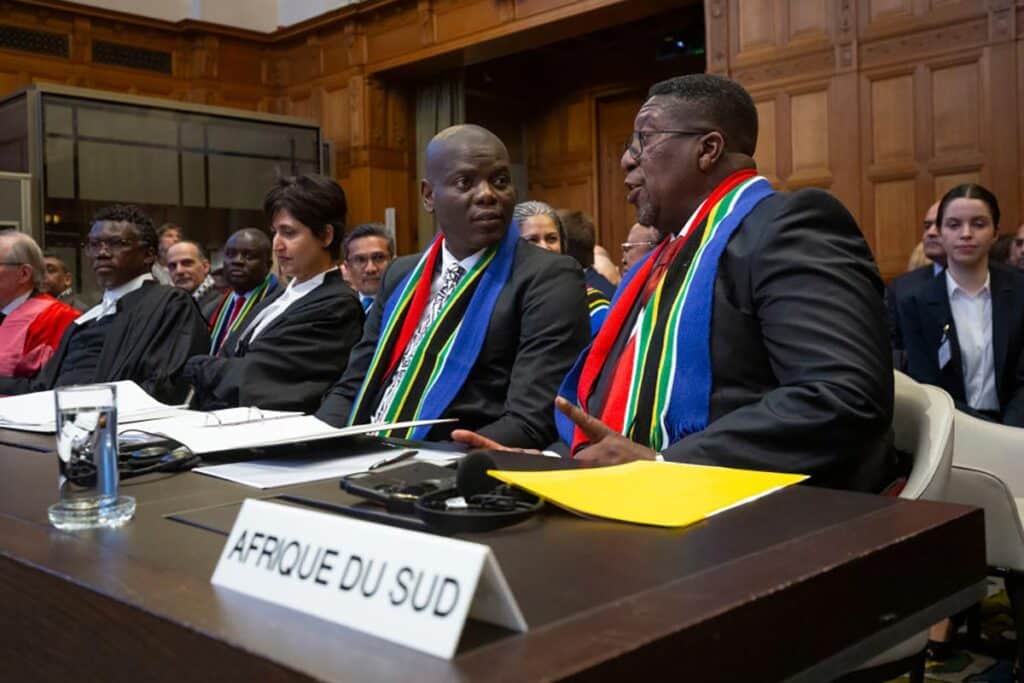
South Africa accused Israel of violating the Genocide Convention, the main piece of international law defining the crime or genocide and obligating countries to enforce the prohibition against it.
Under the Genocide Convention, countries must not only prevent the act of genocide, but they also need to prevent and punish incitement to genocide and the conspiracy and intent to commit genocide.
South Africa is accusing Israel of both “incitement” to genocide and committing it as well. They argued that the Jewish state is imposing conditions “calculated to bring about the physical destruction of the people” and accused Israel of “exterminating” Palestinians.
The South African delegation asked the ICJ judges to require Israel to immediately cease its military operation in Gaza.
How did Israel respond?
Israel’s legal team argued that the significant Palestinian death toll was the result of Hamas’s tactic of embedding itself within civilian infrastructure. They emphasized that Israel’s goal is to destroy Hamas, not target civilians.
British attorney Malcolm Shaw, who is serving as Israel’s head legal representative, emphasized that civilian casualties are a part of every armed conflict, but that does not make it genocidal.
“The crime of genocide in international law and under the Genocide Convention is a uniquely malicious manifestation and stands alone among violations of international law as the zenith of evil, the crime of crimes, ultimate in wickedness,” he said.
Shaw also argued that the South African team selected random quotes by government ministers that did not reflect government policy, creating a distorted picture of the reality on the ground.
He highlighted numerous statements and actions of senior Israeli politicians and IDF officials, emphasizing the goal of targeting Hamas and not civilians.
The defense team is also expected to release testimonies regarding the atrocities committed by Hamas on Oct. 7, including evidence that has not yet been released to the public.
Is Israel committing genocide in Gaza?
Today, the word “‘genocide”’ is unfortunately used casually, so it is important to understand what this word actually means.
Genocide refers to the deliberate and systematic killing of a group of people with the intent of eradicating them due to their ethnicity, nationality, religion or race.
Past genocides include the Holocaust, where 6 million Jews were systematically murdered, the Rwandan Genocide, where over 600,000 Tutsis were killed by Hutu militias, and the Darfur Genocide, where 300,000 civilians were murdered.
Israel is not committing genocide. While the number of Palestinians and Israelis who have been killed is tragic, it is one of the grim realities of war.
The IDF, unlike any other army, goes to great lengths to minimize civilian casualties. In the current war, this includes issuing warnings and distributing leaflets in Gaza to advise residents to evacuate, even if it goes against their military strategy.
IDF releases an audio recording of an officer in the Military Intelligence Directorate's Unit 504 — which specializes in HUMINT — speaking to a Gazan man, during which he describes how Hamas is preventing people from evacuating from the northern part of the Gaza Strip. pic.twitter.com/VgMJO3SzVo
— Emanuel (Mannie) Fabian (@manniefabian) October 26, 2023
Minimizing civilian casualties is a core principle in the IDF’s code of ethics known as tohar ha’neshek, “purity of arms.”
Read more: Is Israel doing enough to protect Palestinian civilians in Gaza?
While the IDF aims to minimize civilian casualties, Hamas intentionally uses its citizens as human shields, embedding its weapons, tunnels and combatants in and near schools, hospitals, mosques, homes and other civilian buildings. This tactic significantly increases the death toll and influences public perceptions of the conflict.
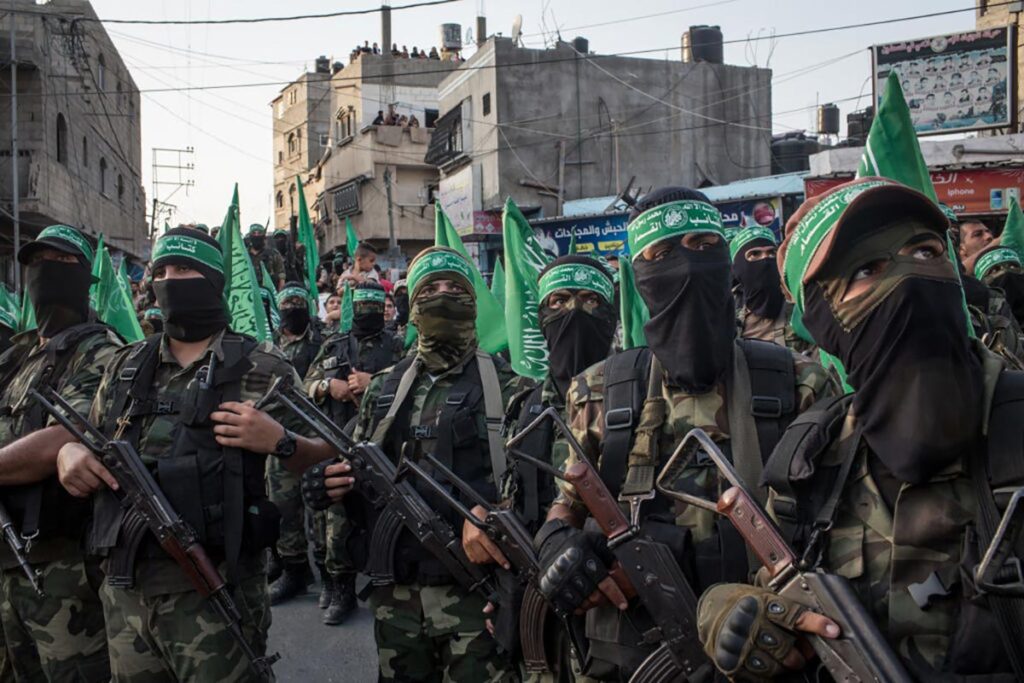
South Africa’s argument failed to mention Hamas’s documented use of civilians as human shields.
Despite the IDF’s extensive efforts to minimize civilian casualties, the war in Gaza has had a tremendous toll on human life.
The difficult reality of war is that civilians will be caught up in the violence, especially when one side uses tactics that raise the number of civilian fatalities on its own side. This is not an act of genocide but the unintentional result of carrying out a war against Hamas.
How could this case affect Israel?
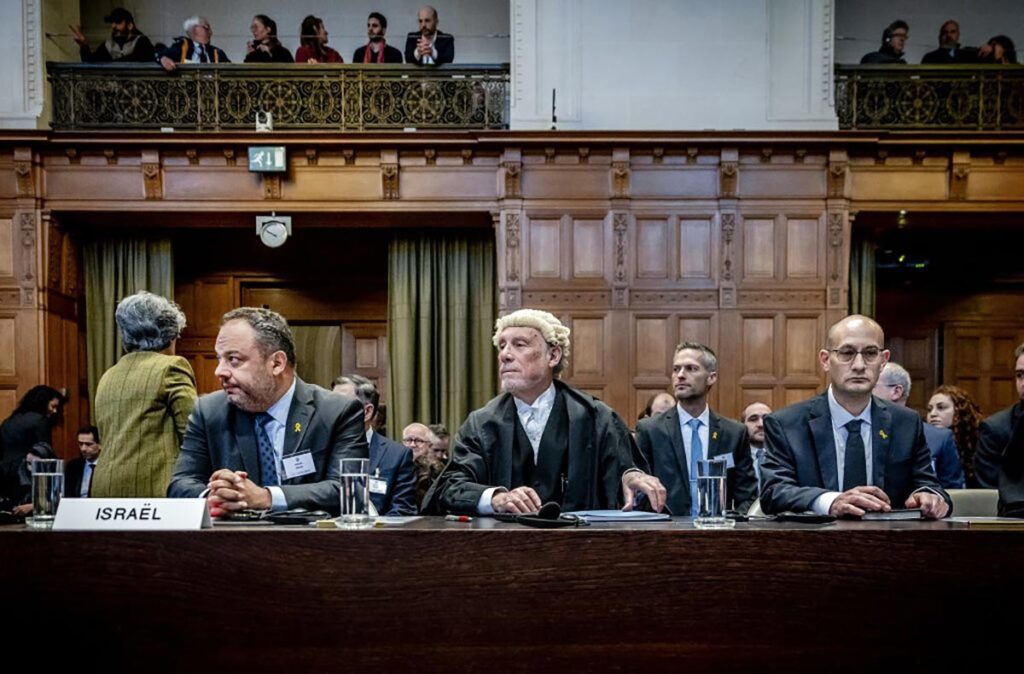
The ICJ issued a provisional ruling on Friday, but their full ruling on whether Israel is violating the convention and committing genocide is expected to take years.
If the court were to rule that Israel is violating the convention, it would likely have severely negative impacts on Israel’s international standing and diplomatic relationships.
While the ICJ has no way to enforce the orders it makes, Israel’s failure to comply with the court’s ruling would risk severely harming Israel’s international standing.
The low bar of “plausibility”
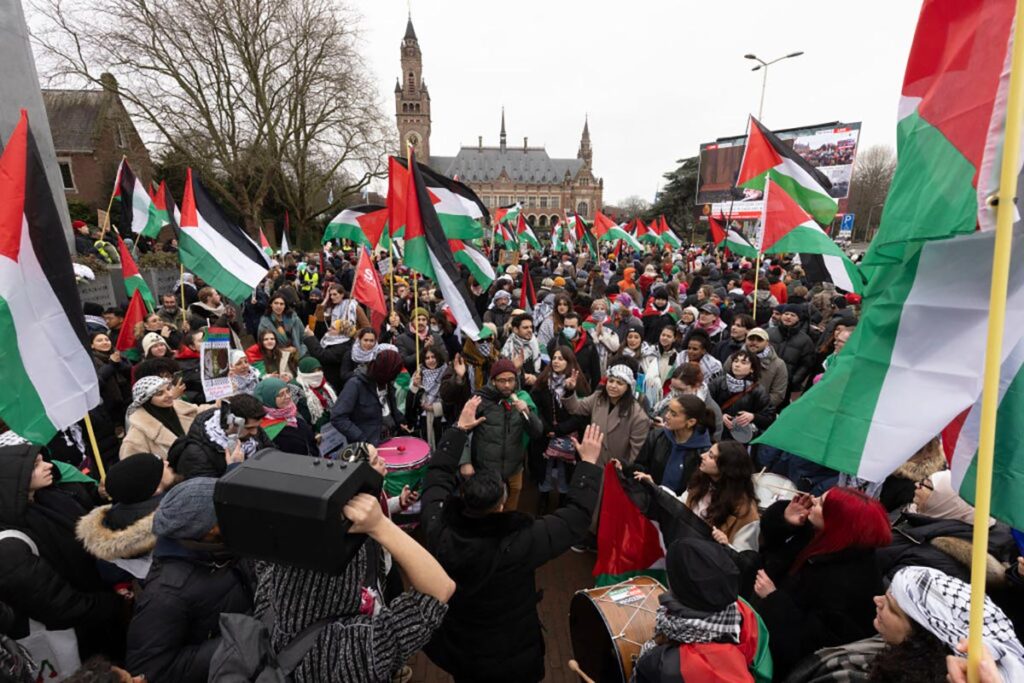
In order to get the court to issue such orders, South Africa doesn’t need to prove that Israel is violating the Genocide Convention. It only has to show that its accusations are “plausible.”
Professor Amichai Cohen, a senior fellow at the Israel Democracy Institute, noted after the hearing on Thursday that “from the point of view of the prosecution, at this stage South Africa only needs to prove that its case is conceivable, in other words, plausible, and that there is urgency in issuing orders to stop the fighting.”
According to Israeli analysts, the central issue is statements made by some Israeli government ministers, which could be seen as calling for or inciting genocide.
For example, on Oct. 28, Prime Minister Benjamin Netanyahu made reference to the enemy of the ancient Israelites, Amalek, stating, “You must remember what Amalek has done to you, says our Holy Bible. And we do remember.”
The South African delegation cited his comment, along with the biblical passage from Samuel I that commands the elimination of all Amalekite men, women, and children.
However, in the same speech, Netanyahu emphasized the IDF’s commitment to minimizing harm to civilians and urged the civilian population in Gaza to relocate to safer areas.
On Tuesday, Israel’s Attorney General Gali Baharav-Miara issued a statement warning against making incendiary assertions: “Statements that call for, among other things, intentional harm to uninvolved citizens, are against the prevailing policy and may constitute criminal offenses, including incitement.”
“We are fighting terrorists and lies”
“We are fighting terrorists and we are fighting lies,” Netanyahu said in a video statement posted on social media. Today, again, we saw an upside-down world in which the state of Israel is accused of genocide at a time in which it is fighting genocide.”
Prime Minister Benjamin Netanyahu:
— Prime Minister of Israel (@IsraeliPM) January 11, 2024
"We are fighting terrorists, and we are fighting lies.
Today, again, we saw an upside down world, in which the State of Israel is accused of genocide at a time when it is fighting genocide.https://t.co/LEvc0GtNwu pic.twitter.com/rvq2E3Hz1N
Israel’s Foreign Ministry expressed outrage at South Africa’s genocide charge, stating, “Today, we were witness to one of the greatest shows of hypocrisy in history, compounded by a series of false and baseless claims.”
The Foreign Ministry referred to South Africa as “the legal arm” of Hamas, adding that the country “utterly distorted the reality in Gaza following the Oct. 7 massacre” and completely ignored Hamas’s attack on Oct. 7 carried out “in an attempt to carry out genocide” against Israelis.
The U.S. also rejected South Africa’s allegations, with National Security Council spokesman John Kirby calling the claims “unfounded.”
.@WhiteHouse spokesperson John Kirby: "We believe these allegations, this case, is unfounded, and that there's no basis for accusations of genocide against Israel.
— AIPAC | Text ISRAEL to 24722 | #StandWithIsrael (@AIPAC) January 11, 2024
That's not a word that ought to be thrown around lightly. And we certainly don't believe that it applies here." pic.twitter.com/vVPPRYG5Rw
“That’s not a word that ought to be thrown around lightly, and we certainly don’t believe that it applies here,” said Kirby. However, U.S. officials disagreed with Israel’s characterization of South Africa as “the legal arm of Hamas.”
Germany also rejected the charge, with a government spokesperson saying, “In light of German history and the crimes against humanity of the Shoah, the German government is particularly committed to the [UN] Genocide Convention.” For this reason, “we stand firmly against a political instrumentalization” of the convention, he added.
Read this next: Debunking 5 common myths about Israel
Originally Published Jan 26, 2024 09:07AM EST
